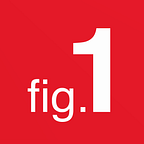Why your doctor doesn’t care about wearables
Consumers are investing time and money in tracking their health. But does anyone want to see all that information?
A nurse arrives at work looking unwell. At a glance, her coworkers are concerned. She happens to be wearing a Fitbit, and they can see she has a pulse of 155 beats per minute and is in atrial fibrillation. Immediately, they send her to the emergency department for treatment. In this case, medical expertise and self-tracking come together just in time. But is this experience common?
A Figure 1 survey asked 2,596 healthcare professionals if they use data captured by patients’ wearables and apps, and the response was clear: 73% said they rarely or never use the data. 20% said they sometimes use the data, and only 6% said they always use it.
Why is tracking data so hard to incorporate into clinical care? We asked healthcare professionals to elaborate. In short, most hospitals and practices have no systemic way to use or review the data, and often the healthcare professionals simply don’t have the time to consider it. That said, we heard from several doctors and nurses who have seen the benefits of digital tracking. But in those cases, they were more likely to single out note-taking apps than purpose-built wearables. Emergency diagnoses like the nurse in atrial fibrillation are the exception rather than the rule.
In a broader sense, a good diagnostician collects all pertinent data and then distills it into what is useful. The issue with wearable and app data is that it’s often neither pertinent nor useful. It’s extraneous and unverified information that slows the process of figuring out what’s wrong with you.
Or in the withering language of the Ontario Medical Association’s recent analysis of wearables: “Doctors will save more lives using the time they have on patients proven to be unhealthy by clinical-grade and approved devices than by studying the immense volume of non-standard data from gadgets worn by a healthier-than-average population … wearables are more of a tool for behaviour modification and do not offer much value in diagnosis.”
Here are excerpts from the discussion among healthcare professionals on Figure 1, edited for spelling and clarity.
Simply not practical
For overworked professionals who must act quickly, analyzing historical health data just takes too much time. Here, an emergency medicine physician and a paramedic explain why.
“Most of the important info is in the skilled extraction of history and exam. Then investigation based on this is useful. Unless you’re promoting the products or have a share in Fitbit, it’s not usually going to help you. Have palpitations? Probably still going to book my own Holter [heart rate monitoring device] etc. Giving me 3 months worth of needless twice-daily blood pressures will only put my heart rate up!”
Emergency medicine physician
“As we are all aware, the lone unconscious patient can present special challenges in narrowing Ddx [differential diagnosis]. However, spending time analyzing data trends in these devices is simply not yet practical.”
Paramedic
Better than a notebook
For other healthcare professionals who have long asked patients to track their symptoms and medications, digital tracking is already benefitting them.
“In gynecology, apps keeping track of menstruation and spotting incidents are very useful.”
OB/GYN
“It is difficult to expect patients to carry a notebook or calendar around to write things down. When you can just tap a few buttons on your smartphone, it makes it much easier and they are more likely to be compliant.”
Nurse practitioner
“The PMHx [patient medical history] on some of the apps is pretty good. A few gave us really good indications for what might be going on. One [person was] hypoglycemic and one with a history of angina took a Cialis and two nitro tabs. Helped us help them.”
Paramedic
“[We use] apps in family practice to track/review their weight progress, food logs/caloric intake, migraine diaries, and blood pressure. Wearables, not really. I believe it’s more of something they will use for self-monitoring.”
Nurse practitioner
Not ready yet
Some healthcare professionals are taking smaller steps towards incorporating past data into their practice.
“We use information a patient has written down on ID cards, and emergency medical facts found in wallets before electronic devices.”
Registered nurse
We invite healthcare professionals to discuss this issue on Figure 1, a global case-sharing community.
Interested in learning more about Figure 1? Email us at communications@figure1.com.
